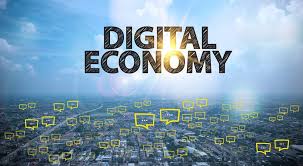Global Systems Mobile Association (GSMA) says modernised regulation and policy reform are crucial to boosting Nigeria’s digital economy and accelerating internet access through increased mobile broadband penetration.
Mr Akinwale Goodluck, the Head of GSMA Sub-Saharan Africa, said this at a one-day workshop with the theme `Future of Industry, Driving Innovation and Growth’’ in Abuja on Thursday.
According to him, GSMA research shows that the mobile market in Nigeria makes important contribution to the economy.
He said that “the mobile industry contributed 21 billion dollars to GDP in 2017, representing 5.5 per cent of Nigeria’s total GDP. In addition, the growth of Nigeria’s digital economy resulted in the creation of nearly 500,000 direct and indirect jobs.
“Accelerating Mobile Broadband Growth in the adoption of digital services by government, businesses and consumers has positive impact on daily lives in Nigeria.
“For majority of Nigerians, mobile broadband is the first and only technology for accessing the internet, enabling better access to health, education and commercial opportunities, among other public services.
“Smartphone adoption has already risen to over 53 million connections, and 49 per cent of the population are currently connected by mobile technology, compared to less than one per cent with fixed-line connection.”
The association head, however, said that the report concluded that there was still broad scope for Nigeria to increase its mobile penetration, noting that although more Nigerians were getting access to mobile broadband, 4G adoption was lagging.
He added that helping to accelerate adoption would enable more advanced services and create bigger societal impacts.
Goodluck said that with increased spectrum harmonisation and licensing reform, the country’s mobile penetration was forecast to rise to 55 per cent of the population by 2025.
He explained that with 70 per cent having 3G connectivity and 17 per cent having access to 4G networks, only 44 per cent of mobile subscribers in Nigeria presently use 3G technology.
He added that 4 per cent of Nigerians were also using 4G technology, compared to over 18 per cent 4G penetration in South Africa and 16 per cent in Angola.
Goodluck, therefore, called for support and release of harmonised spectrum and modernised licensing framework as fundamental building blocks for Nigeria’s digital future.
Prof. Umar Danbatta, the Executive Vice Chairman of Nigerian Communications Commission (NCC), said mobile communication was a cardinal tool of economic development, growth and integration.
According to him, the mobile industry is a key enabler of productivity across economies and societies.
He noted that “the mobile industry is not only a significant contributor to the economic activities of Nigeria, but the growth of other sectors of the economy.
“Statistics has shown that for every ten perc cent increase in broadband penetration, there is a corresponding 1.3 increase in the Gross Domestic Products (GDP) of a nation.
“In Nigeria, however, telecommunication has already contributed 10.43 per cent to the GDP in the second quarter of 2018.
“The level of future uncertainty in the telecommunication industry is increasing, driven by rapid technology, regulatory and customer demand changes.’’
Danbatta promised to further collaborate with GSMA to ensure the advancement of policies and regulations that would enable safe, sustainable and innovative mobile sector for all.
GSMA represents the interests of mobile operator’s worldwide, uniting more than 750 operators with over 350 companies in the broader mobile ecosystem.











